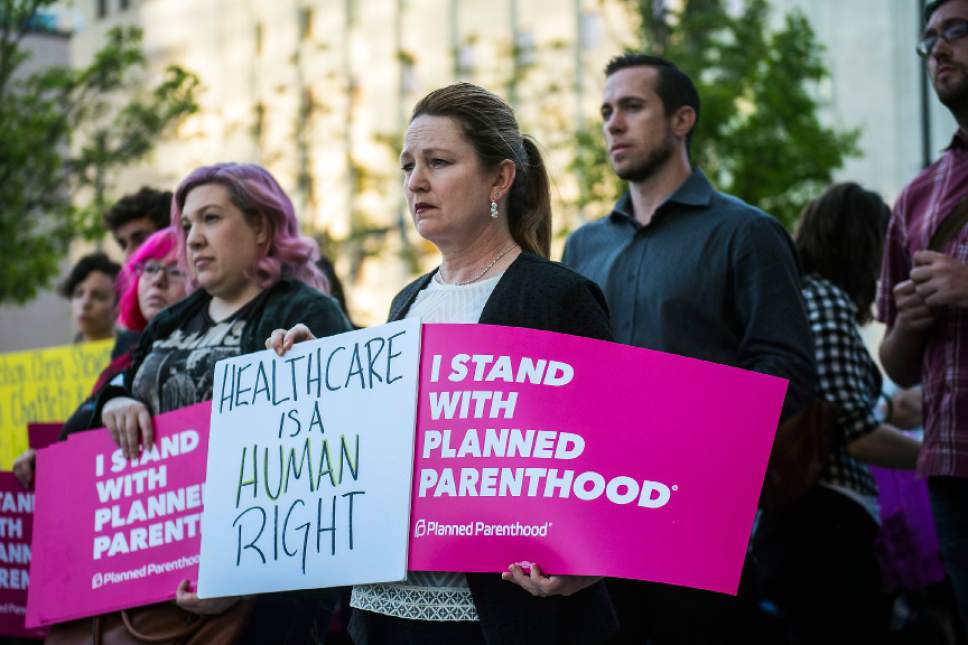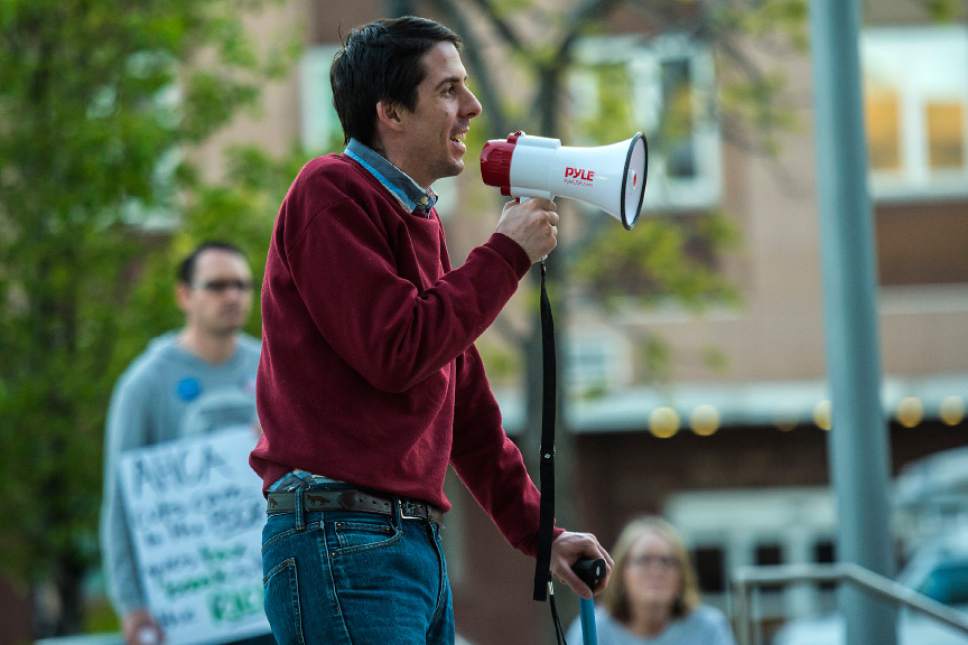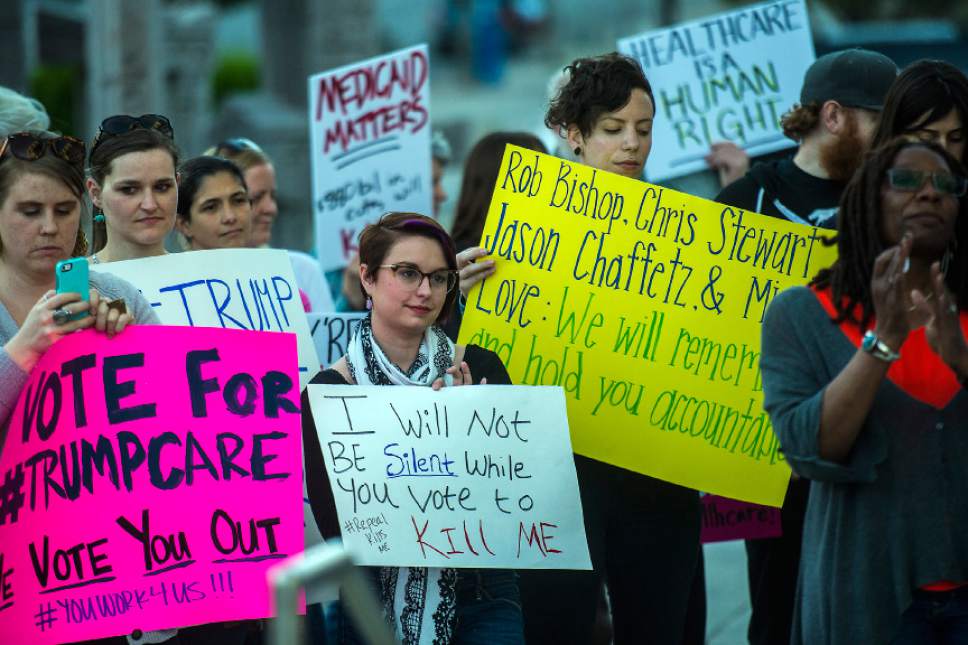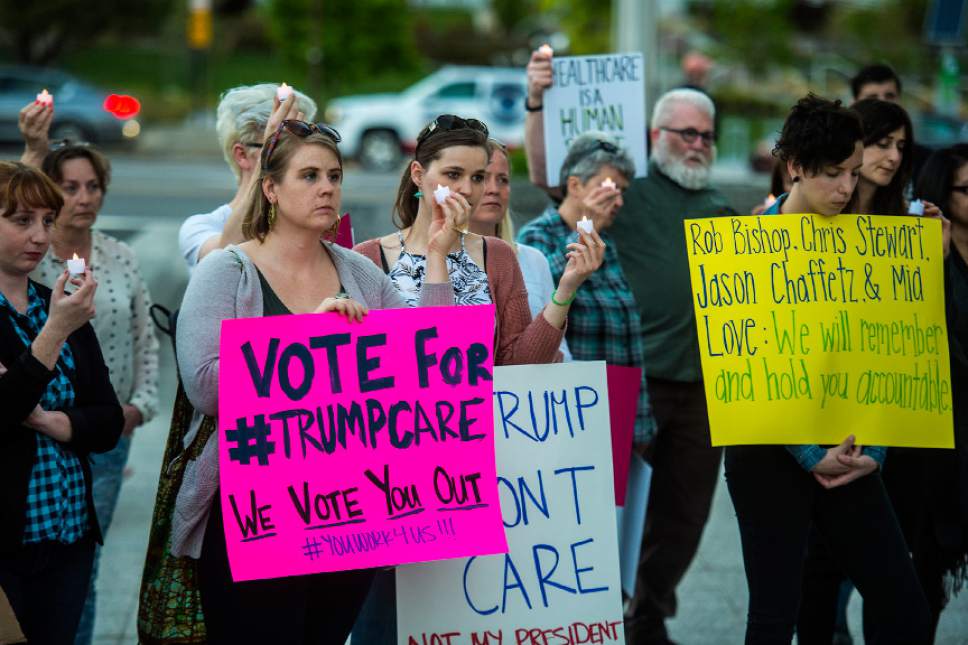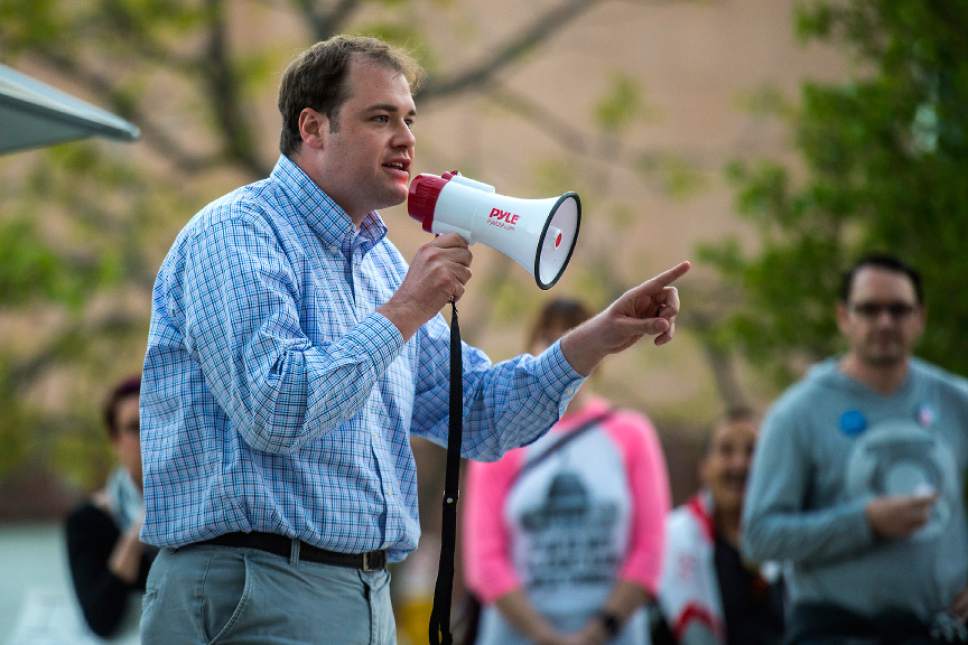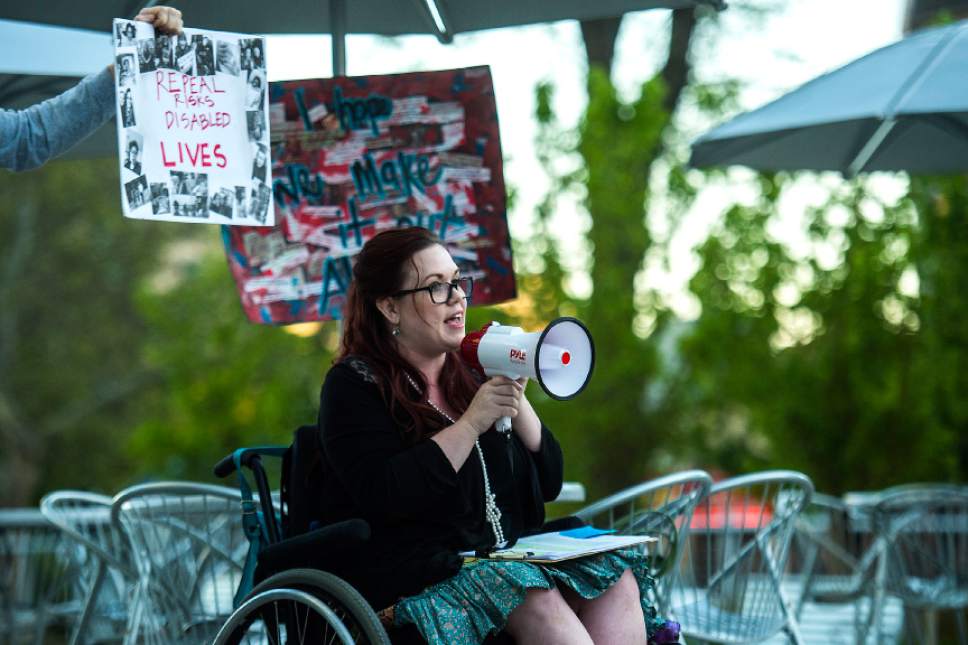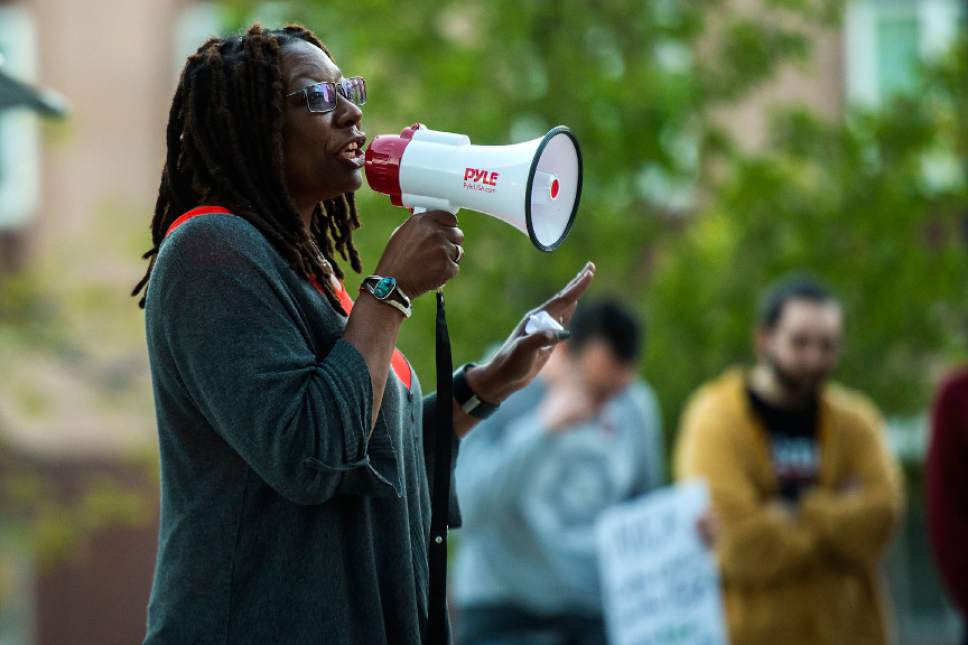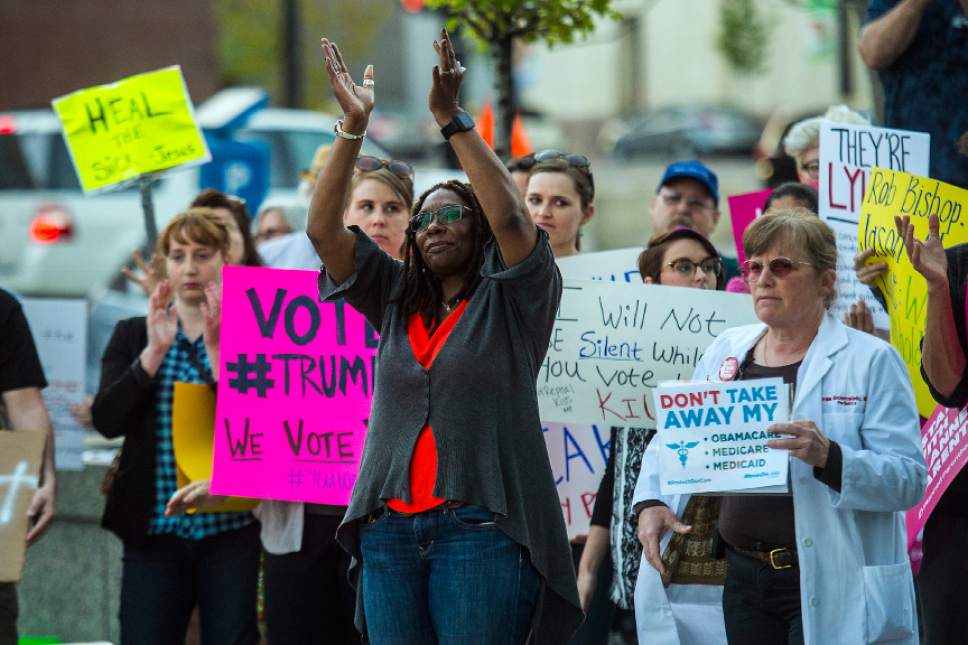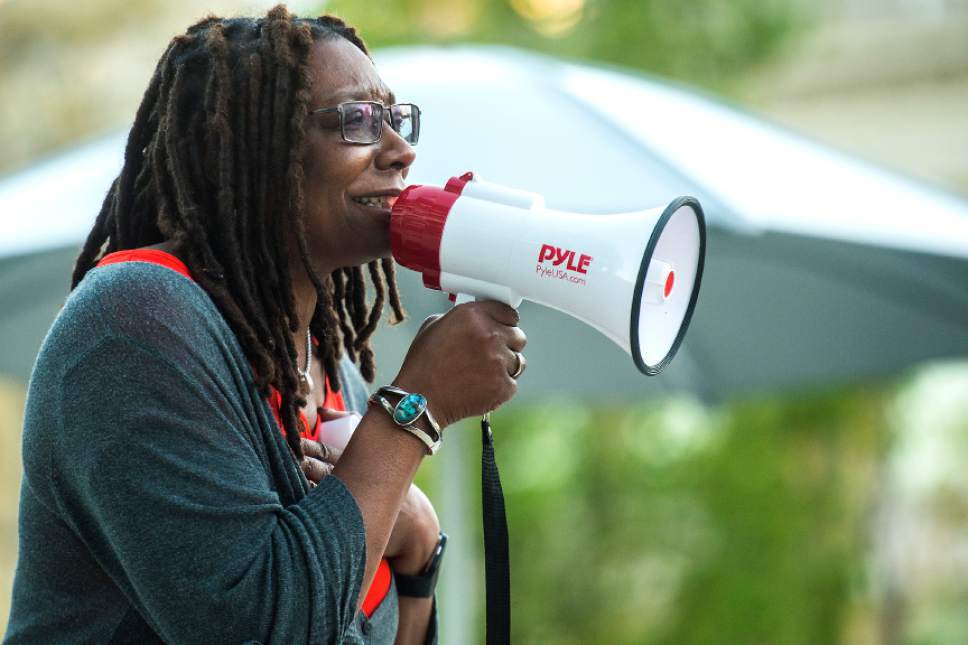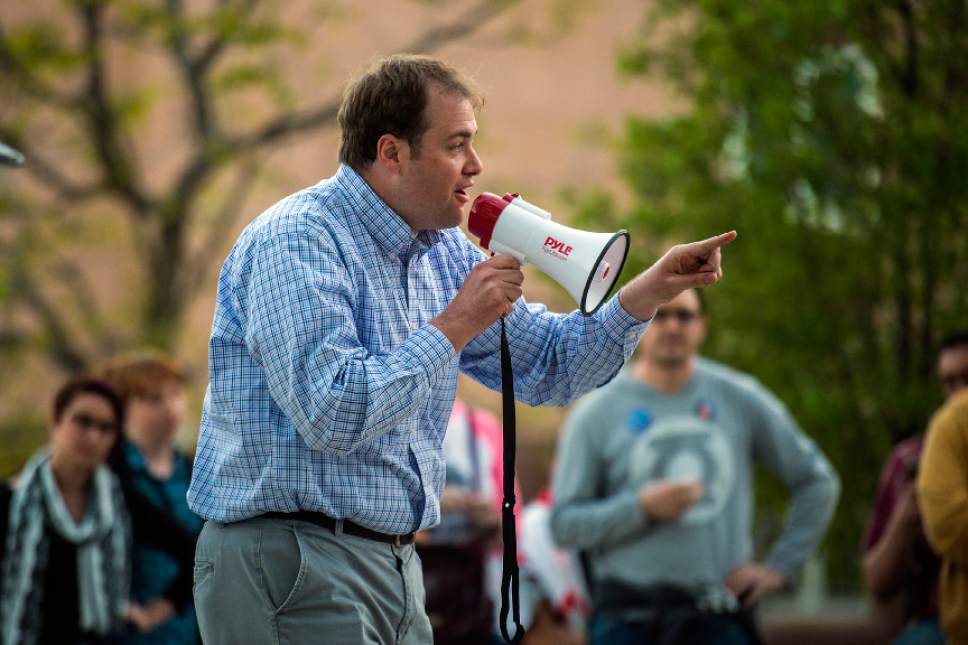This is an archived article that was published on sltrib.com in 2017, and information in the article may be outdated. It is provided only for personal research purposes and may not be reprinted.
Washington • Rolling off the House floor on a knee-scooter after surgery on a 12-year-old foot injury, Rep. Jason Chaffetz said he had ignored his doctor's advice and flew to Washington to vote with his GOP colleagues to repeal Obamacare and replace it with a Republican plan that could — if signed into law — drop millions off their insurance and force some with pre-existing conditions to pay higher premiums.
Chaffetz, along with Utah's other three Republican members of Congress, voted for the American Health Care Act (AHCA), arguing that it would lower premiums and drive down costs and that there are guarantees for those who have illnesses or injuries they will be able to obtain coverage.
"Physically, my doctor didn't want me to be here but absolutely I needed to be here," Chaffetz said. "It's a big important vote and it was close. I didn't want to be the reason it failed. I wanted to be the reason it passed."
Chaffetz, who is likely to step down from his post within weeks, dismissed concerns that the GOP bill would actually make it more difficult, and costly, for Americans with pre-existing conditions to get health care.
"I've announced that I'm leaving Congress; I obviously have a pre-existing condition," said Chaffetz, sporting a bandaged foot balanced on the scooter from a surgery last week. "I think this bill will actually make life better for a majority of Americans, I really do, especially for those who have pre-existing conditions."
The passage of the bill — by a vote of 217-213, with 20 GOP members and all Democrats in opposition — was heralded as a major win for President Donald Trump and Republicans, who had for years railed against Obamacare, officially the Affordable Care Act, and the mandate that all Americans buy insurance. House approval required 216 votes.
The GOP measure, which may not be able to pass the Senate, would allow states to seek waivers of a rule that insurers cannot charge a higher rate for Americans with pre-existing conditions who have lapsed in coverage.
Another part of the bill would allow states to ask for waivers of coverage for some benefits such as mental health and maternity care.
The bill had exempted members of Congress from its provisions until media reports prompted a separate vote removing that carve-out for politicians.
The bill's passage spooked Rachel Taylor, who runs a small recruiting firm in Salt Lake City and was diagnosed with multiple sclerosis 17 years ago. Her monthly medication costs run $5,500, she said, and her insurance now covers all of it. But she worries any changes could upend that coverage and leave her in danger.
"If I understand correctly, as long as we don't have a break in coverage they can't charge us more. But what about those people who are in transition. These things will impact them physically. I'm flabbergasted they would do this to us," she said Thursday. "For the average Joe out here living with some type of issue, it is terrifying."
A group of about 75 people who said they weren't spoken for by their representatives gathered at the Wallace Bennett Federal Building in Salt Lake City on Thursday evening to protest the AHCA and share concerns of potentially losing their health care. Among the protesters were three Utahns who said they will run for Congress — two planning campaigns for the seat held by Republican Rep. Mia Love — and one who said he will run for West Valley City mayor. Several advocated for single-payer health care, including Ben Frank, who said he will run for the seat Chaffetz says he'll vacate. Frank walks with a cane because of multiple sclerosis, and he said he plans to fight for single-payer health care, a universal system in which the government pays medical bills and the private sector remains responsible for medical care.
Democrats cast Thursday's vote as a death knell to the Republican majority in Congress, arguing that about 24 million Americans, many who voted for Trump, will be the ones losing their health care under the GOP plan.
"Na na na na, na na na na, hey hey hey, goodbye!" Democrats sang in the House chamber after the vote, hinting next year's election could oust many Republicans who voted for the health bill.
Other groups lamented passage of the bill that had initially stalled in the House but received a majority of votes after some changes forced by the House's right flank.
"It is unconscionable that our U.S. representatives would vote yes on such a horrendous health-care bill," said Chase Thomas, policy and advocacy counsel with Alliance for a Better Utah. "Not only does this put tens of thousands of low-income and sick Utahns at risk of losing their health coverage, but it also drastically undermines the quality of coverage for everyone else. Whether you get your health insurance through Medicaid, your employer, or an individual plan — no one will be able to escape the consequences of this bill."
Sen. Orrin Hatch heralded the "major step" the House took to end Obamacare's "harmful taxes and mandates," while protecting patient-centered health-care decisions.
"At the same time, we will be working to put together a package that reflects our members' priorities with the explicit goal of getting 51 votes," Hatch said. "Coupled with the constraints imposed by the budget reconciliation process, we must manage expectations and remain focused on the art of the doable as we move forward."
Fellow GOP senator, Lindsay Graham of South Carolina, tweeted his concerns that the Senate would take up the House bill.
"A bill — finalized yesterday, has not been scored [for cost-related impacts], amendments not allowed, and 3 hours final debate — should be viewed with caution," he wrote.
Rep. Rob Bishop, R-Utah, said that Thursday's vote was only the first step, but moved the issue in the right direction.
"Nothing is perfect around here but Obamacare is bound to fail," Bishop said in an interview off the House floor. "It's on a pathway to failure, something has to be done or everyone gets screwed over. This bill, first of all, is not complete. Other elements have to come along to it. The bottom line is if you do nothing and kept on with Obamacare, then everyone loses whether they have pre-existing conditions or not."
Love said she kept her promise to constituents to repeal and replace Obamacare.
"This legislation provides many levels of protection for those with pre-existing conditions, while giving states greater flexibility to lower premiums and stabilize the insurance market," Love said in a statement. "Women's access to health services will be expanded by directing money to community health centers. Utahns, not the federal government, should decide what is best for them and their health care."
Rep. Chris Stewart, R-Utah, said Americans have been asking Congress to jettison Obamacare for something better.
"Today we delivered," Stewart said. "The American Health Care Act will drive down costs, offer families more choices and importantly protect people with pre-existing conditions."
An average of polls on Obamacare in the last few months by Real Clear Politics shows some 50 percent of Americans approve of the existing law while 42 percent oppose it.



